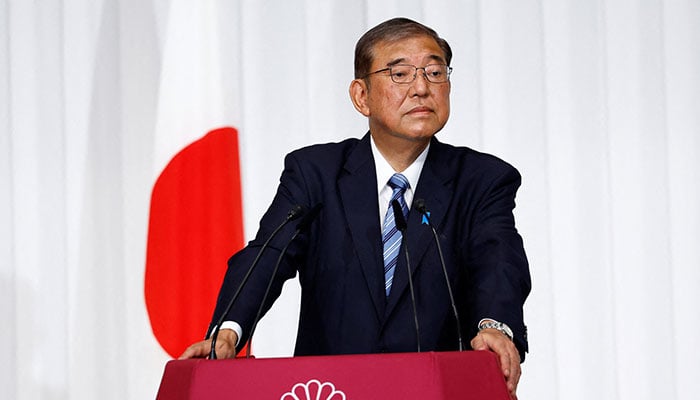
TOKYO (Reuters) – The composition of Japan’s next government was in flux on Monday after voters punished Prime Minister Shigeru Ishiba’s ruling coalition in a weekend election, leaving no party with a clear mandate to lead the world’s fourth-largest economy.
The uncertainty has sent the yen to its lowest level in three months, as analysts prepare for days, or perhaps weeks, of political wrangling to form a government and possibly change the leader.
This comes as the country faces economic headwinds, a tense security situation fueled by China and nuclear-armed North Korea, and a week before American voters head to the polls in another unpredictable election.
“We cannot allow even a moment of stagnation because we are facing very difficult situations in our security and economic environment,” a defiant Ishiba said in a press conference on Monday. He pledged to continue as prime minister.
Ishiba’s Liberal Democratic Party and junior coalition partner Komeito won 215 seats in the lower house of parliament, down from 279 seats, as voters punished incumbents over a financing scandal and cost of living crisis. Two government ministers and the leader of the Komeito Party, Keiichi Ishii, lost their seats.
The biggest winner that night, the main opposition Constitutional Democratic Party of Japan, won 148 seats, up from 98 previously, but still far short of the 233-seat majority.
As required by the constitution, the parties now have 30 days to decide which group can govern, and there is still uncertainty about how long Ishiba – who became prime minister less than a month ago – can remain after the defeat. Small parties have also made gains and their role in the negotiations could be key.
“It seems unlikely that (Ishiba) will be able to stay on to lead a new government as prime minister… although it is possible that he will remain as acting government,” said Tobias Harris, founder of political risk consultancy Japan Foresight.
Christian Democratic Party leader Yoshihiko Noda said he would work with other parties to try to oust the two incumbents, although analysts see this as a more remote possibility.
The LDP has ruled Japan for almost all of its post-war history and the result marked its worst election since it briefly lost power in 2009 to the LDP.
